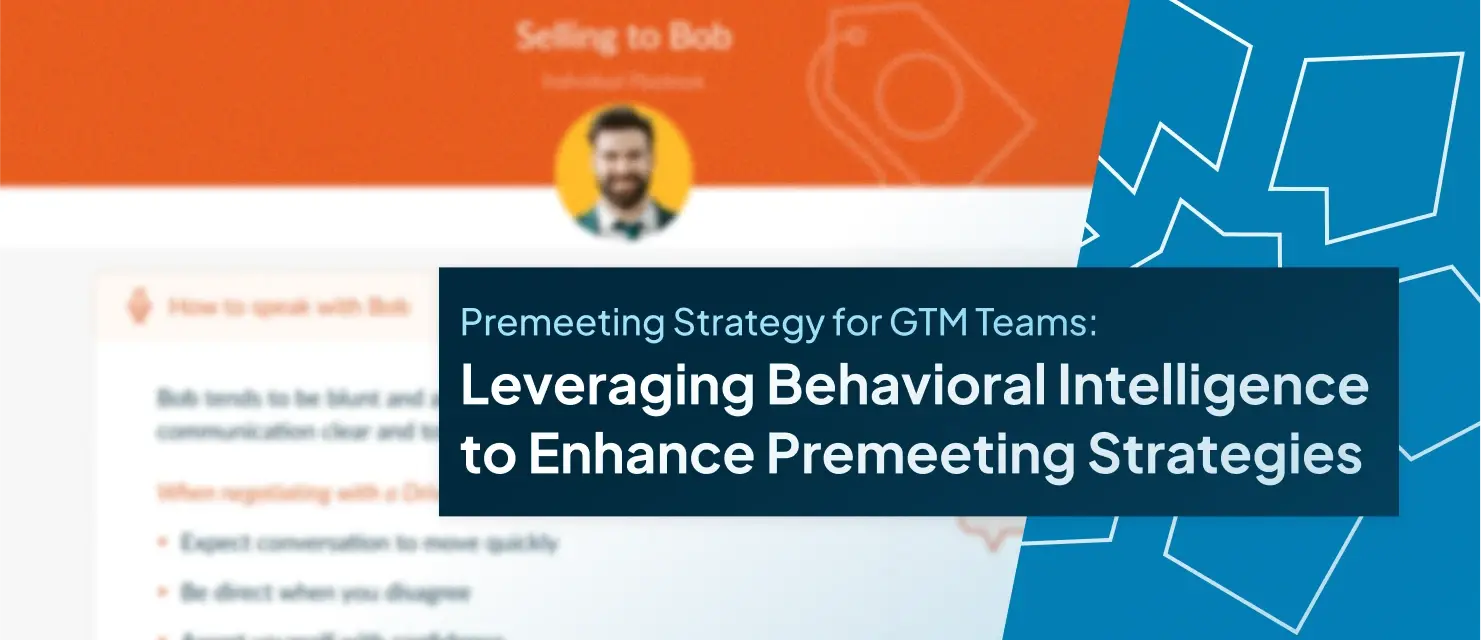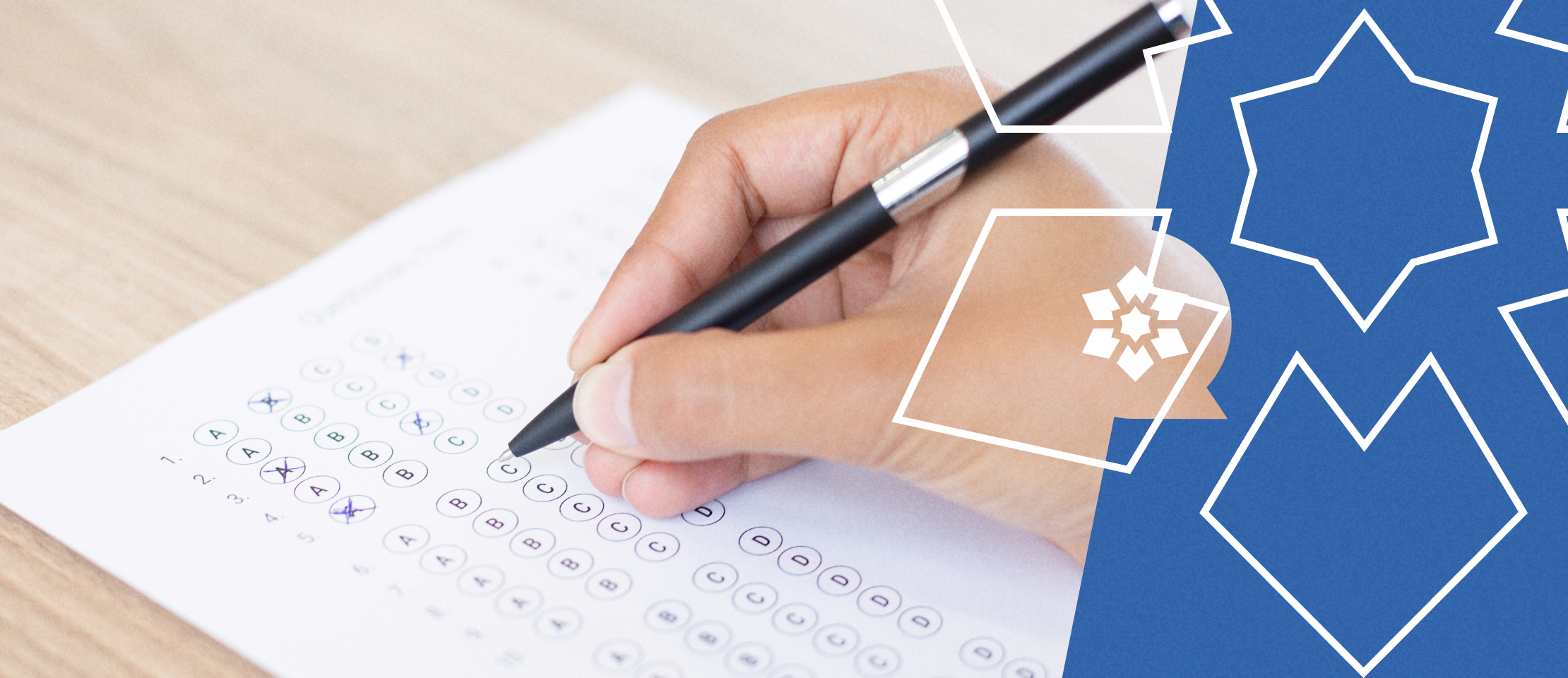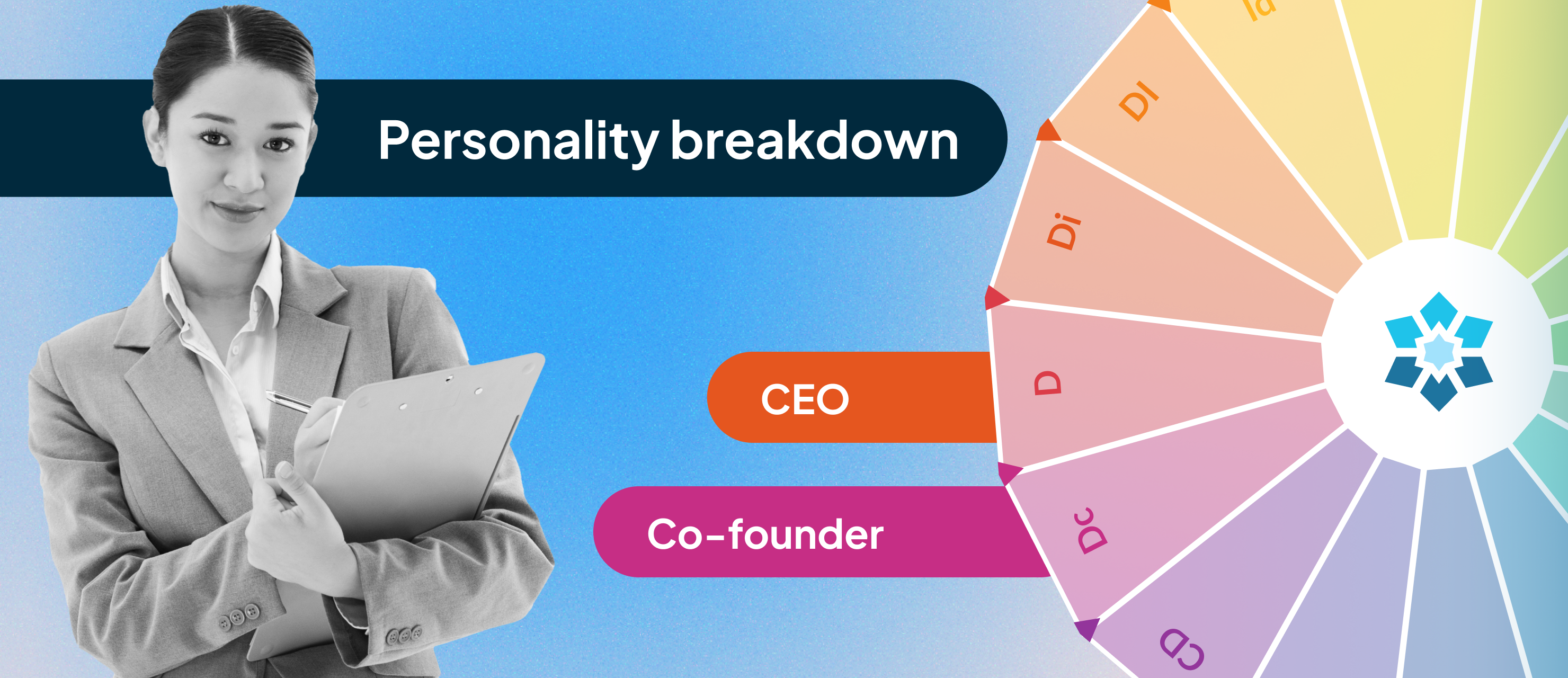
Meeting Preparation
While mind-reading remains firmly in the realm of science fiction, behavioral intelligence offers the next best thing: a toolkit for predicting strengths, blindspots, decision-making styles, and communication habits.
Let's face it — you'll never be able to read someone's mind. And we're not here to give you that superpower. But what if we told you there's a way to get pretty close?
By tapping into your prospect's DISC personality type, you can anticipate their needs and tailor your approach to their natural tendencies.
Welcome to part five of our series on pre-meeting strategies for GTM teams, where we're diving into the world of behavioral intelligence.
![]()
What Is Behavioral Intelligence and Why Is It Important?
Behavioral intelligence is the ability to understand and predict human behavior based on observable patterns and traits. In sales interactions, this can provide valuable insights into a prospect's decision-making process, communication preferences, and potential strengths or weaknesses. Sales professionals can use this information to tailor their approach, anticipate needs, and address concerns more effectively.
Understanding behavioral cues allows GTM teams to prepare for meetings with greater precision. It helps in crafting personalized pitches, selecting appropriate communication styles, and even predicting potential objections.
For example, recognizing that a prospect values detailed analysis might prompt a salesperson to prepare comprehensive data before the meeting. Identifying a prospect's preference for direct communication could lead to a more concise, to-the-point presentation.
Behavioral intelligence also contributes to building stronger relationships with prospects. When salespeople align their communication style with the prospect's preferences, it immediately creates a sense of rapport and understanding. This alignment often leads to more productive conversations, increased trust, and better sales outcomes.
![]()
Understanding the DISC Personality Framework
 The DISC Personality framework categorizes personalities into four main types: Dominance (D), Influence (I), Steadiness (S), and Conscientiousness (C). Each type exhibits distinct behaviors and preferences in communication and decision-making.
The DISC Personality framework categorizes personalities into four main types: Dominance (D), Influence (I), Steadiness (S), and Conscientiousness (C). Each type exhibits distinct behaviors and preferences in communication and decision-making.
Dominance
These individuals are direct, results-oriented, and decisive. They value efficiency and may become impatient with lengthy discussions. In meetings, they prefer clear, concise information and quick decisions.
Influence
People with this trait are enthusiastic, optimistic, and people-oriented. They enjoy social interactions and may make decisions based on feelings or intuition. They respond well to stories and personal anecdotes in presentations.
Steadiness
These individuals are patient, supportive, and team-oriented. They value stability and may be resistant to rapid change. In meetings, they appreciate a calm, structured approach and may need time to process information before making decisions.
Conscientiousness
C-types are analytical, detail-oriented, and cautious. They value accuracy and logic in decision-making. They often require comprehensive data and may ask probing questions during meetings.
By identifying a prospect's DISC personality type, GTM teams can tailor their pre-meeting preparation and presentation style. For a D-type, you might prepare a brief, results-focused presentation. For an I-type, your sales meeting could incorporate engaging stories and focus on building rapport.
Additionally, when meeting an S-type, a clear, step-by-step explanation of your proposal might help walk the prospect logically through their decision. Finally, for a C-type, try to come prepared with detailed data and be ready to answer in-depth questions.
Through this framework, you can handle objections before the call even begins — after all, you already know the types of questions and concerns your prospect might have.
![]()
How to Uncover Behavioral Intelligence
While identifying your prospect’s personality type might be challenging to do from social media, you can still rely on certain tendencies on-call. For instance, observing and interpreting a prospect's verbal and non-verbal cues during interactions is another valuable source of behavioral intelligence.
Pay attention to their communication style, decision-making process, and reactions during previous engagements. These observations can be documented in your CRM for future reference.
For example, a Dominant (D) type might speak assertively, make quick decisions, and maintain direct eye contact. An Influence (I) type may demonstrate enthusiasm in speech and body language, engage in small talk, and show expressive facial expressions. You can leverage these traits as a way to better understand your prospect, learning even more about their individual tendencies.
The most effective way to identify behavior intelligence types is Crystal Knows. Rather than going through the guessing process, your prospects can take a simple test to identify their DISC framework type — allowing you to be more prepared for each sales meeting you take.

And if you want reference personality data, you can leverage Crystal’s API right inside your CRM for maximum results (pictured above).
![]()
Using Behavioral Intelligence for Enhancing Meetings
Behavioral intelligence offers GTM teams a powerful tool for customizing their pre-meeting strategies. By understanding a prospect's unique communication style, decision-making process, and potential concerns, sales professionals can craft a more effective approach.
Crystal’s Playbooks go beyond simply adjusting your communication style — they involve a comprehensive preparation that anticipates the prospect's needs and preferences throughout the entire sales process.

For instance, when setting expectations or gathering information, your approach should align with the prospect's behavioral type. Some prospects may prefer a direct, no-nonsense discussion of facts and figures, while others might respond better to a more collaborative, story-driven presentation.
Similarly, when discussing pricing or negotiating terms, understanding your prospect's decision-making style can help you present information in the most persuasive manner.
Follow-up strategies should also be informed by behavioral intelligence. The frequency, format, and content of your post-meeting communications can be optimized based on your prospect's preferences, ensuring continued engagement and progress in the sales process.
Remember, the goal of using behavioral intelligence is not to manipulate but to create a more personalized and effective sales experience. And by using Crystal’s Calendar Integration and playbooks, you can easily integrate behavioral intelligence into your sales process.

Elevate Your Pre-Meeting Gameplan
Being well-prepared for executive meetings is crucial. It’s how you stay ahead of your competition and optimize your sales process. That’s why premeeting.com, a new service by Crystal, offers a solution that goes beyond traditional research methods.
Our expert researchers provide tailored insights about the executives you'll be meeting, ensuring you're always the most prepared person in the room. This service enhances your GTM team's capabilities, offering intelligence that helps you build instant credibility and stronger relationships with key decision-makers.
Leverage premeeting.com to gain the benefits of a personal researcher without the cost of a full-time analyst. Sign up for our beta today and receive pre-meeting insights straight to your email.
Recommended posts
Why Crystal?
Personality
Content








